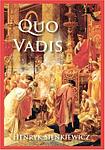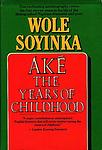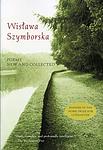The Greatest Nigerian, Polish Books of All Time
Click to learn how this list is calculated.
This list represents a comprehensive and trusted collection of the greatest books. Developed through a specialized algorithm, it brings together 300 'best of' book lists to form a definitive guide to the world's most acclaimed books. For those interested in how these books are chosen, additional details can be found on the rankings page.
Genres
Countries
Date Range
Reading Statistics
Click the button below to see how many of these books you've read!
Download
If you're interested in downloading this list as a CSV file for use in a spreadsheet application, you can easily do so by clicking the button below. Please note that to ensure a manageable file size and faster download, the CSV will include details for only the first 500 books.
Download-
1. Things Fall Apart by Chinua Achebe
This novel explores the life of Okonkwo, a respected warrior in the Umuofia clan of the Igbo tribe in Nigeria during the late 1800s. Okonkwo's world is disrupted by the arrival of European missionaries and the subsequent clash of cultures. The story examines the effects of colonialism on African societies, the clash between tradition and change, and the struggle between individual and society. Despite his efforts to resist the changes, Okonkwo's life, like his society, falls apart.
-
2. Ferdydurke by Witold Gombrowicz
"Ferdydurke" is a satirical novel that explores the themes of maturity, identity, and societal norms. The protagonist, a thirty-year-old writer, is forcibly regressed by two professors back to his adolescence and placed in a school setting. The narrative critiques the artificiality of adulthood and the pressure of societal expectations, while also exploring the struggle for self-expression and individuality. The book is known for its absurdist humor and its examination of the human condition.
-
3. Solaris by Stanislaw Lem
The novel is a psychological exploration of human limitations and failures set against the backdrop of space exploration. When a psychologist arrives at a research station orbiting a distant planet covered entirely by a sentient ocean, he discovers the crew in disarray, haunted by physical manifestations of their subconscious fears and desires. As he grapples with the ocean's inscrutable nature and its unsettling ability to materialize human thoughts, he is forced to confront his own guilt and regret, embodied by the apparition of his deceased wife. The story is a philosophical meditation on the impossibility of truly understanding alien intelligence and the painful isolation of the human condition.
-
4. Quo Vadis by Henryk Sienkiewicz
Set in ancient Rome during the reign of Emperor Nero, "Quo Vadis" follows the love story of a young Christian woman Lygia and a Roman patrician, Marcus Vinicius. As their relationship blossoms, they must navigate the dangerous political climate of the time, marked by Nero's tyranny and the growing influence of Christianity. The novel provides a vivid depiction of the clash between pagan Rome and the early Christian church, culminating in the Great Fire of Rome and subsequent persecution of Christians.
-
5. Half of a Yellow Sun by Chimamanda Ngozi Adichie
The novel is set in Nigeria during the Biafran War, exploring the impact of the conflict on the lives of its characters. The story is told from the perspective of three characters: a young houseboy, a radical university professor, and the professor's wealthy lover. The narrative delves into themes of love, race, and war, offering a vivid depiction of the horrors of conflict and the resilience of the human spirit.
-
6. The Famished Road by Ben Okri
The novel centers around the life of an abiku, a spirit child, who resides in the bustling city of Lagos. Despite numerous attempts to return to the spiritual world, the boy is tethered to the physical realm through the love of his mother. As he navigates through the political unrest and poverty of post-colonial Nigeria, he experiences a series of surreal and mystical encounters, all while wrestling with the pull of the spirit world. The narrative is a blend of reality and the supernatural, providing a unique perspective on the struggles and complexities of human life.
-
7. Arrow of God by Chinua Achebe
Set in Nigeria during the early 20th century, the story follows Ezeulu, the chief priest of the god Ulu, as he struggles to maintain his position of power in his village and with his own family. As the British colonial government seeks to exert control, Ezeulu finds himself caught between the traditional religious practices of his people and the new political realities. The narrative explores themes of power, tradition, change, and the clash of cultures.
-
8. Americanah by Chimamanda Ngozi Adichie
The novel follows a young Nigerian woman who emigrates to the United States for a university education. While there, she experiences racism and begins blogging about her experiences as an African woman in America. Meanwhile, her high school sweetheart faces his own struggles in England and Nigeria. The story is a powerful exploration of race, immigration, and the complex nature of identity, love, and belonging.
-
9. The Palm Wine Drinkard And His Dead Palm Wine Tapster In The Dead's Town by Amos Tutuola
This novel follows the surreal and fantastical journey of an African man with an insatiable thirst for palm wine, who, after the death of his skilled tapster, embarks on a quest to the land of the dead in hopes of bringing him back to the world of the living. Along the way, he encounters a myriad of bizarre and supernatural obstacles, including ghosts, witches, and other mythical creatures, each presenting their own challenges and moral lessons. The narrative, rich with the oral tradition of Nigerian folklore and written in a distinctive pidgin English, weaves a tale that explores themes of desire, loss, and the intersection of the living and the spiritual realms.
-
10. Second-class Citizen by Buchi Emecheta
"Second-Class Citizen" is a poignant narrative about a young Nigerian woman, Adah, who dreams of getting an education and moving to the United Kingdom. Despite cultural and societal obstacles, Adah manages to achieve her dream but is met with more hardship as she faces racial discrimination, an abusive marriage, and the struggle of raising five children in a foreign land. Through her resilience, she continues to strive for a better life, depicting the struggles of immigrants and the strength of women.
-
11. The Painted Bird by Jerzy Kosinski
"The Painted Bird" is a dark and harrowing novel set in Eastern Europe during World War II. The story follows a young, unnamed boy of unknown ethnicity who is sent by his parents to live in a remote village for safety. However, he is instead subjected to brutal violence, abuse, and superstition by the superstitious peasants. The book explores themes of survival, human cruelty, and the loss of innocence in the face of war and hatred.
-
12. This Way for the Gas, Ladies and Gentlemen by Tadeusz Borowski
This book is a collection of short stories based on the author's experiences as a prisoner in Auschwitz during the Holocaust. Each story provides a harrowing, yet matter-of-fact, account of life in the concentration camp, from the brutal work details to the constant threat of death. The author's stark and unflinching portrayal of the horrors of Auschwitz serves as a powerful testament to the human capacity for survival and resilience in the face of unimaginable cruelty.
-
13. On the Revolutions of the Heavenly Spheres by Nicolaus Copernicus
This book presents the revolutionary astronomical model that places the sun, rather than the earth, at the center of the universe. The author challenges the geocentric model of the cosmos, which had been widely accepted since the time of Aristotle, and instead proposes a heliocentric system, where the planets orbit the sun. This revolutionary idea transformed the way we understand our place in the universe, paving the way for modern astronomy and science.
-
14. The Captive Mind by Czesław Miłosz
"The Captive Mind" is a thought-provoking exploration of the intellectual and moral dilemmas faced by artists and intellectuals living under oppressive regimes. Through a series of powerful and insightful essays, the author delves into the psychological and ideological transformations experienced by individuals who compromise their values and conform to the demands of totalitarianism. With a blend of personal anecdotes, historical analysis, and philosophical reflections, this book offers a profound examination of the complexities of intellectual freedom and the power of ideology.
-
15. The Magician of Lublin by Isaac Bashevis Singer
This novel tells the story of Yasha Mazur, a talented and renowned 19th-century Jewish magician living in Poland. Yasha is a complex character, torn between his own desires and the expectations of his religious community. He leads a double life, juggling his career, his marriage, and his multiple affairs. As he grapples with his conflicting identities, Yasha is forced to confront his own moral failings and the consequences of his actions. His journey is one of self-discovery and redemption, offering a nuanced exploration of faith, love, and the human condition.
-
16. Gimpel the Fool by Isaac B Singer
"Gimpel the Fool" is a collection of short stories that portray the life of Gimpel, a simple baker who is often deceived by the people in his town. Despite the continuous deceit, Gimpel maintains his faith in humanity and never seeks revenge. Throughout the stories, the protagonist's innocence and naivety are contrasted with the harsh realities of the world, exploring themes of faith, forgiveness, and the inherent goodness of people.
-
17. The Street of Crocodiles by Bruno Schulz
"The Street of Crocodiles" is a collection of short stories set in a small town in Poland, illustrating the author's unique perspective on reality. The book portrays the narrator's father's eccentricities and his vivid, often disturbing, imagination. The stories are filled with bizarre, dreamlike imagery and metaphors, presenting a surreal and grotesque view of everyday life. The book is a profound exploration of human nature, memory, and the power of imagination.
-
18. The Joys Of Motherhood by Buchi Emecheta
"The Joys of Motherhood" is a poignant and powerful novel that explores the life of Nnu Ego, a Nigerian woman who struggles to find fulfillment and happiness in the traditional role of motherhood. Set against the backdrop of colonial Nigeria, the story delves into themes of gender inequality, cultural expectations, and the sacrifices mothers make for their children. Through Nnu Ego's experiences, the author offers a thought-provoking examination of the complexities and contradictions of motherhood in a rapidly changing society.
-
19. The Manuscript Found in Saragossa by Jan Potocki
"The Manuscript Found in Saragossa" is a complex, multi-layered narrative that revolves around a young officer who discovers an ancient manuscript during the Napoleonic Wars. The manuscript contains a series of interwoven stories that span across time and space, featuring a range of characters including gypsies, bandits, and noblemen. These tales explore themes of philosophy, morality, and the supernatural, all while offering a fascinating glimpse into 18th-century Spanish culture.
-
20. The Palm-Wine Drinkard by Amos Tutola
This novel follows the story of a man from Nigeria who is addicted to palm wine. After his tapster (the man who taps palm trees to make his wine) dies, he embarks on a journey into the spirit world to find him. Along the way, he encounters a host of supernatural beings and experiences a series of bizarre and thrilling adventures. The book is a unique blend of Yoruba folktales, surrealism, and fantasy.
-
21. Ake: The Years Of Childhood by Wole Soyinka
"Ake: The Years of Childhood" is a memoir that chronicles the early years of a Nigerian boy growing up in the town of Ake. Set in the 1940s, the book vividly captures the author's experiences, from his close-knit family life to his encounters with colonialism and the struggle for independence. Through his insightful and lyrical prose, the author takes readers on a nostalgic journey filled with rich cultural traditions, humorous anecdotes, and poignant reflections on the complexities of childhood.
-
22. Shah Of Shahs by Ryszard Kapuscinski
This book is a compelling blend of history and personal narratives, set against the backdrop of Iran's 1979 revolution. The author, a seasoned journalist, delves into the complex tapestry of Iranian society, exploring the rise and fall of the last monarch. Through a series of vignettes and interviews with Iranians from all walks of life, the narrative captures the atmosphere of fear and hope that defined the era. The work is as much an examination of the mechanics of power and the ease with which a society can be manipulated as it is a chronicle of a pivotal moment in Iran's history. The author's lyrical prose and sharp insights offer a timeless reflection on the nature of tyranny and the human struggle for freedom.
-
23. The Futurological Congress by Stanislaw Lem
In a dystopian future, the protagonist attends a scientific conference where he is exposed to a new hallucinogenic drug that transports him to a surreal and chaotic world. As he navigates through this bizarre reality, he becomes entangled in a conspiracy involving mind-altering technology, political manipulation, and the struggle for power. This satirical novel explores themes of reality, identity, and the dangers of unchecked technological advancements.
-
24. Satan In Goray by Isaac Bashevis Singer
Set in the 17th century, the novel explores the impact of false messianic fervor on the Jewish community of Goray, a small Polish town. After the devastating Chmielnicki massacres, the traumatized survivors find themselves drawn to the charismatic but ultimately destructive figure of Sabbatai Zevi, who claims to be the long-awaited Messiah. As the community becomes increasingly divided between believers and skeptics, the narrative delves into themes of faith, madness, and the desperate need for redemption, painting a vivid picture of a society on the brink of collapse under the weight of its own expectations and desires.
-
25. Poems, New And Collected, 1957 1997 by Wislawa Szymborska
This book is a collection of poems written by Wislawa Szymborska from 1957 to 1997. The poems explore a wide range of topics, including love, death, nature, and the human experience. With her unique and thought-provoking style, Szymborska delves into the complexities of life, often with a touch of humor and irony. Through her powerful and evocative language, she invites readers to reflect on the profound and sometimes contradictory aspects of existence.
Reading Statistics
Click the button below to see how many of these books you've read!
Download
If you're interested in downloading this list as a CSV file for use in a spreadsheet application, you can easily do so by clicking the button below. Please note that to ensure a manageable file size and faster download, the CSV will include details for only the first 500 books.
Download























